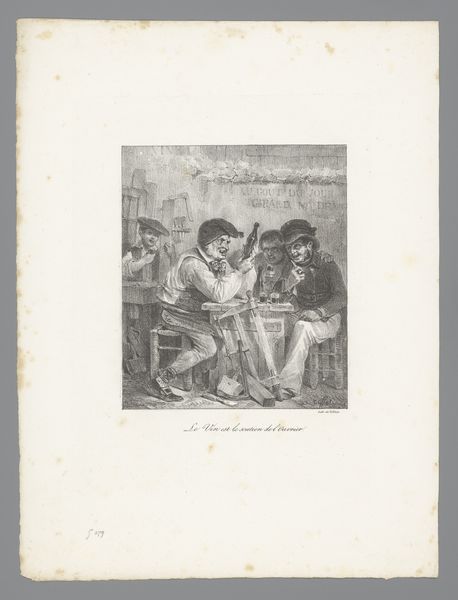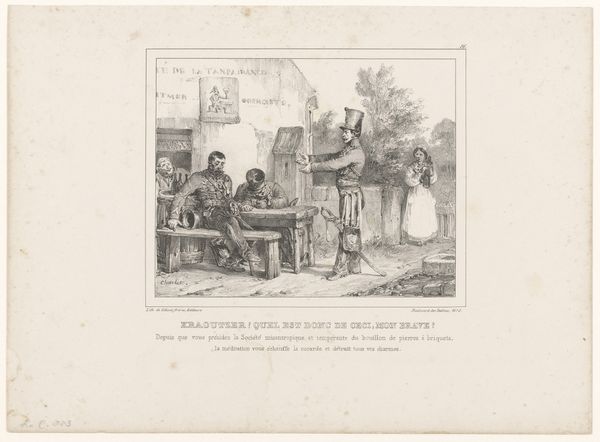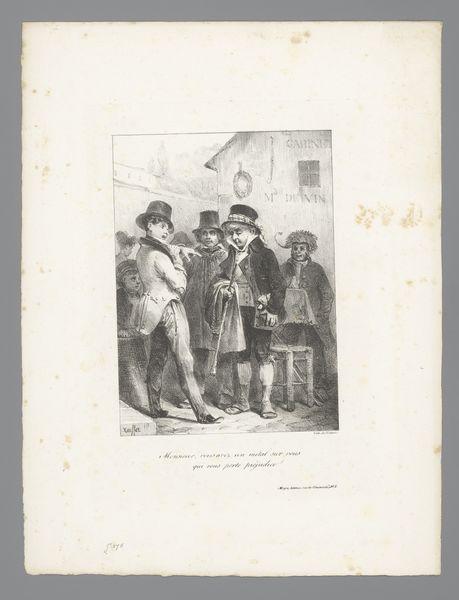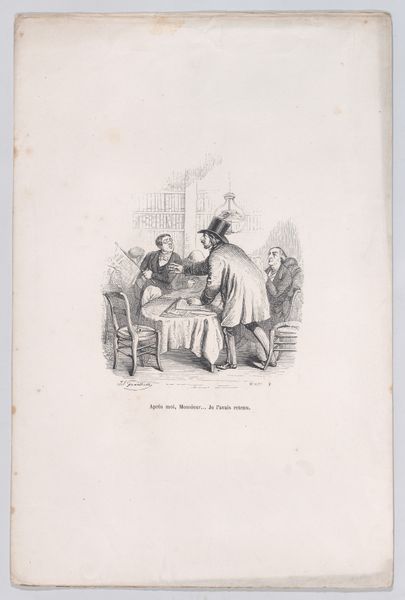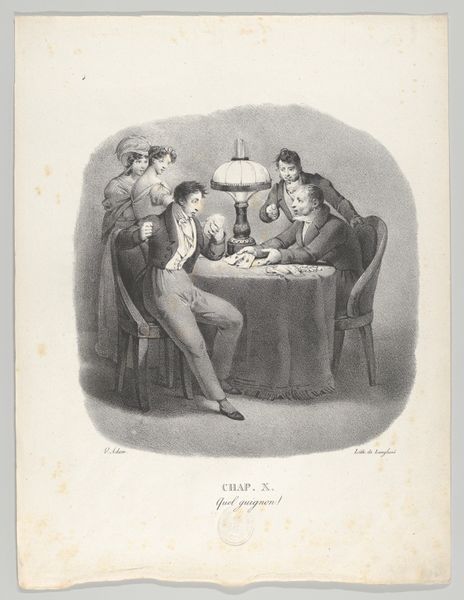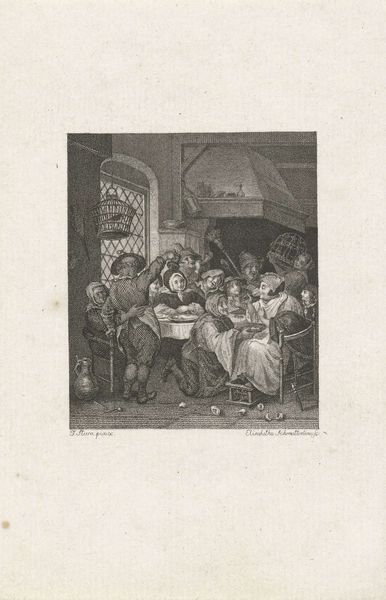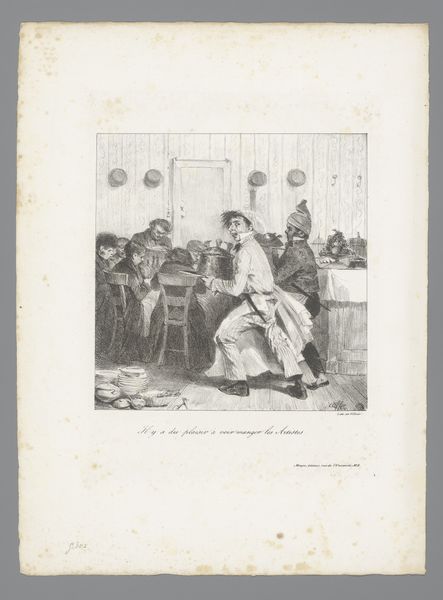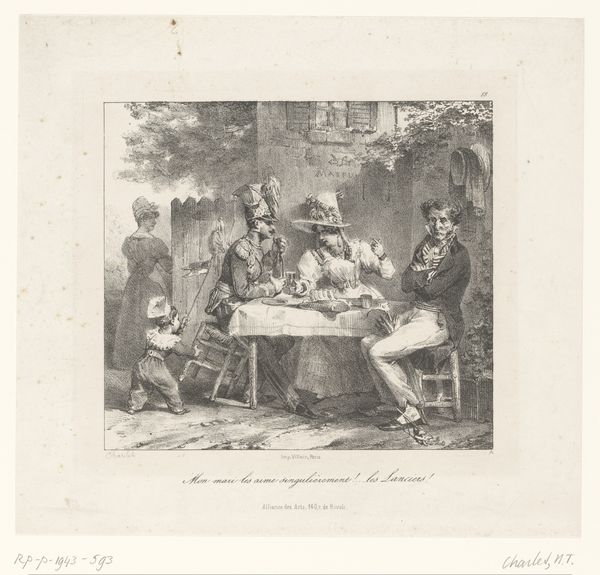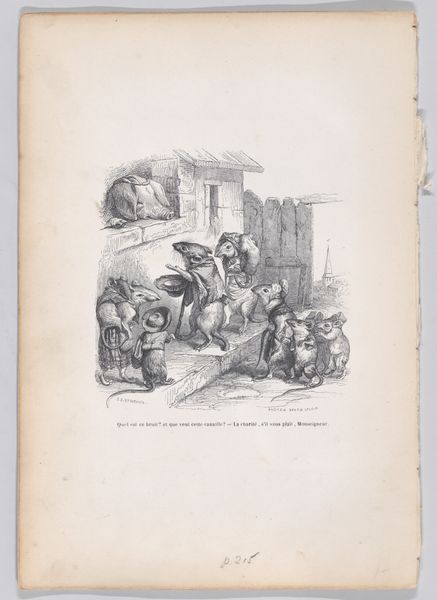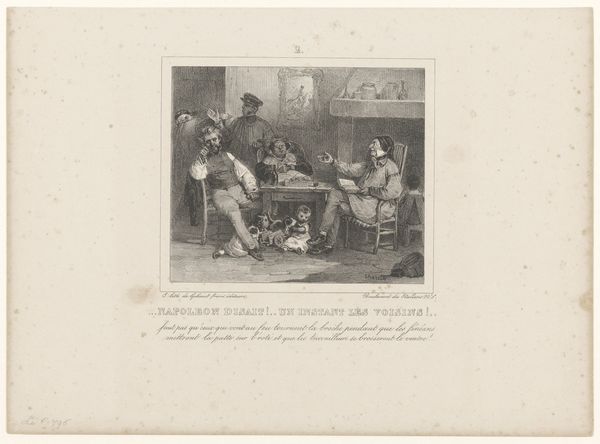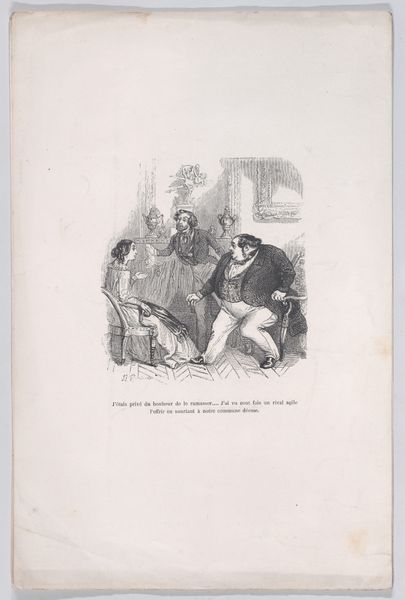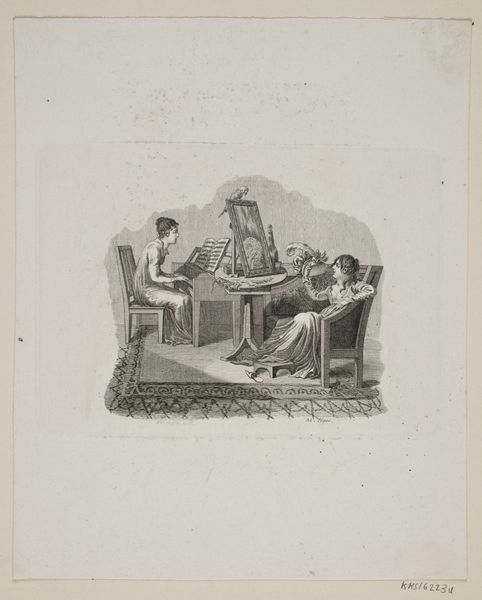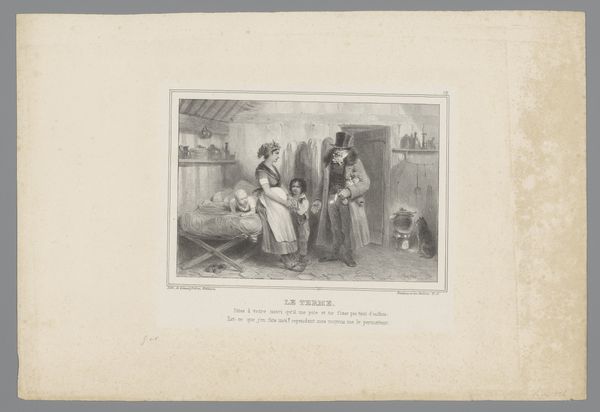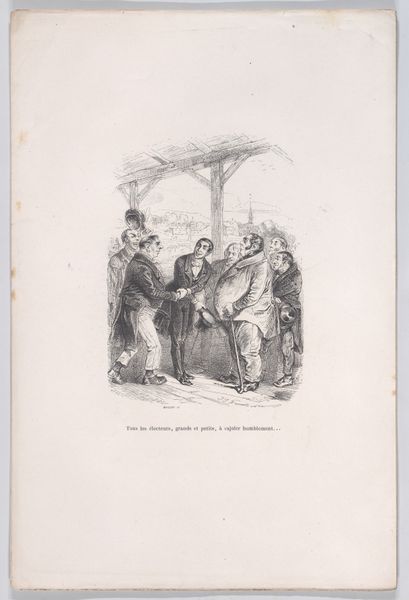
Soldaten en mannen zittend aan tafel met eten en drinken 1825 - 1829
0:00
0:00
augusteraffet
Rijksmuseum
drawing, print, paper, ink, pencil
#
portrait
#
drawing
#
narrative-art
# print
#
paper
#
ink
#
romanticism
#
pencil
#
genre-painting
Dimensions: height 360 mm, width 268 mm
Copyright: Rijks Museum: Open Domain
Auguste Raffet made this print, "Soldiers and men sitting at a table with food and drinks," using lithography, a printmaking process that relies on the drawn mark. Here, the greasy ink of the lithographic crayon, applied to a smooth stone, captures a tavern scene with remarkable immediacy. Consider how Raffet's choice of lithography informs the work's social significance. Unlike the precise lines of engraving, lithography allowed for a more spontaneous, sketch-like quality. This would have been very appealing to artists wanting to depict everyday life. The inherent qualities of the lithographic crayon allowed Raffet to capture the subtle gradations of light and shadow, the textures of the soldiers' uniforms, and the weariness etched on their faces. There’s a looseness here that is a departure from fine art. Lithography also democratized printmaking, making it more accessible to a wider range of artists and audiences. This print, in its directness and accessibility, reflects the changing social and political landscape of 19th-century France, where the lives of ordinary people were increasingly depicted in art. So, we can see it not only as an image, but also as a product of its time.
Comments
No comments
Be the first to comment and join the conversation on the ultimate creative platform.
